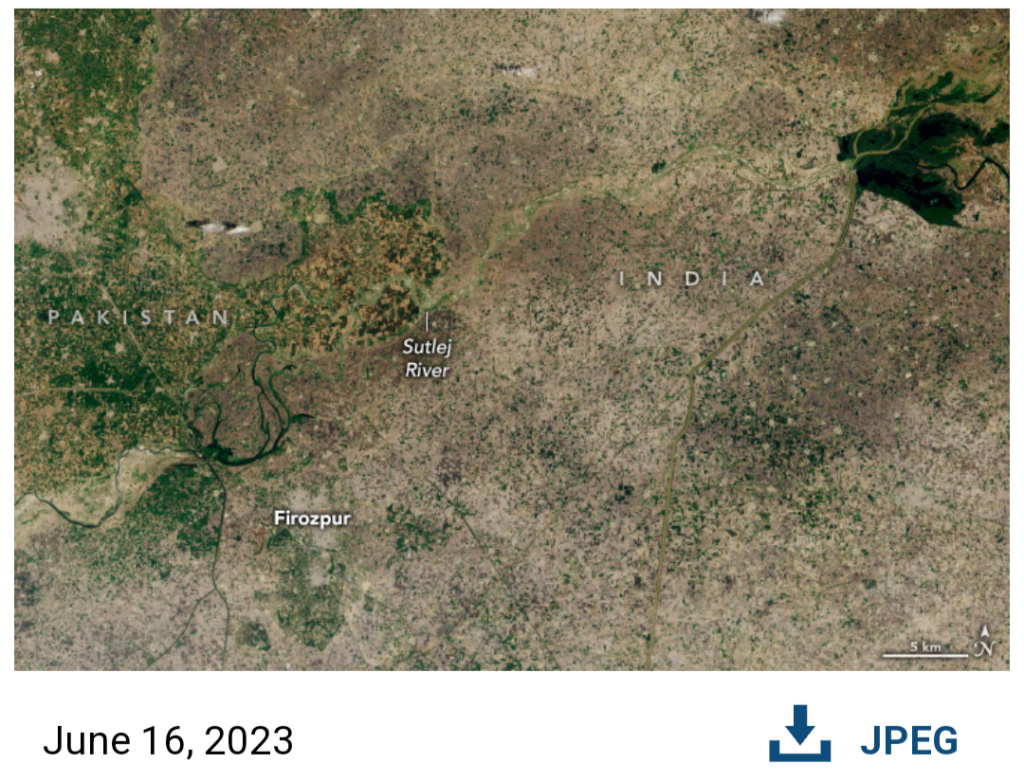June 16, 2023 to August 19, 2023.
Weeks of heavy monsoon rains flooded farmland and hundreds of villages along the Sutlej River in Pakistan and India in August 2023.
The pair of images above highlights flooding along the Sutlej River, near Firozpur in the Punjab region. The image on the right shows water overtopping banks of the river on August 19. The image on the left shows the same region on June 16, before much of the flooding took place. Both images were acquired with the Operational Land Imager-2 (OLI-2) on Landsat 9.
The Sutlej River flows southwest from India into Pakistan. Although the state of Punjab in India received about average rainfall since June, according to India’s Meteorological Department, excess rain has fallen on Ladakh and Himachal Pradesh, to the north. Between June 1 and August 25, Ladakh received almost three times as much rain as normal.
According to ReliefWeb, over 200,000 people have been evacuated in Pakistan and several hundred villages have been inundated with floodwater since late June, the start of the monsoon season.
Water levels on the Sutlej at the Ganda Singh Wala village gauging station, 7 kilometers (4 miles) west of Firozpur, were “exceptionally high” on August 19, according to the Pakistan Meteorological Department. Pakistan’s chief meteorologist covering floods said the river level was at its highest in 35 years.
The summer monsoon, which occurs between June and September every year, brings South Asia much of its annual rainfall. It is vital for the millions of farmers in the region, but it can also bring floods and landslides that lead to evacuations.
More than 200 people have died in Pakistan in rain-related incidents since the monsoon season began in late June, according to Pakistan’s National Disaster Management Authority. Many areas of Pakistan are still recovering from the devastation of extreme monsoon rains in 2022, which flooded nearly one-third of the country and killed more than one thousand people.
NASA Earth Observatory images by Wanmei Liang, using Landsat data from the U.S. Geological Survey. Story by Emily Cassidy.
Source, NASA.



